Hebrew is a language native to Israel.

The setaceous Hebrew character is a moth of the family Noctuidae. The species was first described by Carl Linnaeus in his 1758 10th edition of Systema Naturae. It is found in the Palearctic realm. It is a common species throughout Europe and North Asia and Central Asia, South Asia, China, Japan and Korea. It is also found in North America, from coast to coast across Canada and the northern United States to western Alaska. It occurs in the Rocky Mountains from Montana to southern Arizona and New Mexico. In the east, it ranges from Maine to North Carolina. It has recently been recorded in Tennessee.
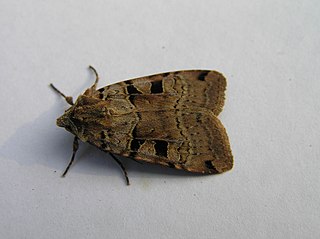
The double square-spot is a moth of the family Noctuidae. It is distributed through most of Europe except Portugal, the Mediterranean islands and northernmost Fennoscandia. In the East, the species ranges East across the Palearctic to Siberia and in the South-East to the Black Sea and in Iran. It rises to a height of about 2,000 metres (6,600 ft) in the Alps.

The square-spot rustic is a moth of the family Noctuidae. It is found in Europe, North Africa and east across the Palearctic and in North America.

Ashworth's rustic is a species of moth. Its colouring is blue/grey and it is mainly nocturnal.

Xestia is a genus of noctuid moths. They are the type genus of the tribe Xestiini in subfamily Noctuinae, though some authors merge this tribe with the Noctuini. Species in this genus are commonly known as "clays", "darts" or "rustics", but such names are commonplace among Noctuidae. Xestia moths have a wide distribution, though they most prominently occur in the Holarctic.

Xestia baja, the dotted clay, is a species of moth of the family Noctuidae. It is found in Europe, Turkey, northern Iran, Transcaucasia, the Caucasus, central Asia, Siberia, Mongolia, Tibet, China, Korea and Japan.

Xestia badicollis, the northern variable dart, northern conifer dart or white pine cutworm when referring to the larval stage, is a moth of the family Noctuidae. The species was first described by Augustus Radcliffe Grote in 1873. It is found in North America from Nova Scotia to North Carolina, west to Missouri and Ontario.
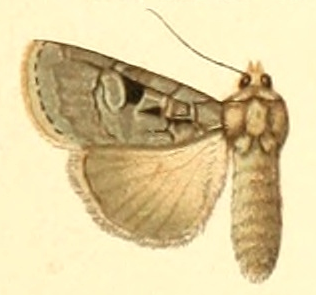
Xestia sareptana is a moth of the family Noctuidae. It is known from few localities in the European part of south-eastern Russia, Turkey, the Caucasus region, western Iran, Lebanon and Israel.
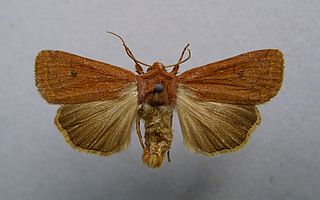
Xestia castanea, the grey rustic or neglected, is a moth of the family Noctuidae. It is found from central Europe to Morocco, Turkey, Lebanon, Israel, Jordan and Syria.

Xestia palaestinensis is a moth of the family Noctuidae. It is found in Greece, south-eastern Turkey, Lebanon, Israel, Syria, Jordan, northern Iraq and western Iran.
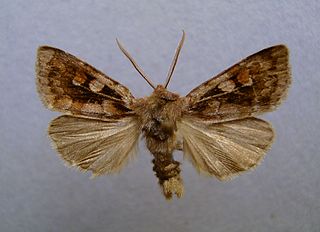
Xestia alpicola, the northern dart, is a moth of the family Noctuidae. It is found from northern Europe across the Palearctic to central Siberia and in the Alps.

Xestia stigmatica, the square-spotted clay, is a moth of the family Noctuidae. It is found in most of Europe, Transcaucasia, Caucasus, Kazakhstan, northern Turkey and northern Iran.
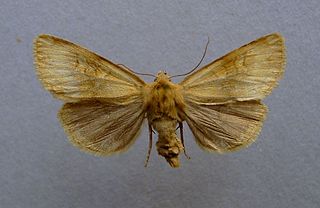
Xestia lorezi is a moth of the family Noctuidae. It is found in northern Europe and the Alps. Subspecies lorezi is found in the Alps on altitudes between 1,700 and 2,500 meters. Subspecies kongsvoldensis is found in Fennoscandia and northern Russia. Outside of Europe, there are four more subspecies, ssp. sajana in the Sayan Mountains, ssp. katuna in the Altai mountains, ssp. monotona in Yakutia and ssp. ogilviana in Yukon and Alaska.

Xestia speciosa is a moth of the family Noctuidae. It is found in northern Europe, including Fennoscandia, the Baltic region, parts of Russia and further through northern Asia to the Pacific Ocean and Japan. It is also found in the mountainous areas of central and southern Europe. It is also present in north-western North America.

Xestia rhaetica is a moth of the family Noctuidae. It is found in northern Europe, central Fennoscandia, northern Russia and further east to Siberia. It is also present in the Tatra Mountains and the Bohemian Forest. In the Alps it is found on altitudes between 1,000 and 2,500 meters, but it is found at sea level in northern Europe. The species is also present in the Nearctic, including New York.
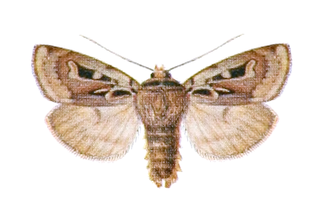
Xestia wockei is a moth of the family Noctuidae. It is known from Siberia and northern North America, including Quebec, Newfoundland and Labrador, the Northwest Territories and Yukon.

Xestia staudingeri is a moth of the family Noctuidae. It is known from Siberia, as well as North America.
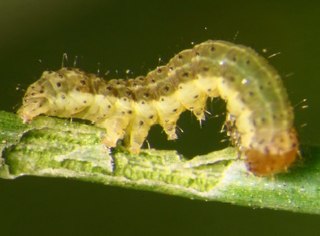
Xestia brunneopicta is a moth of the family Noctuidae. It is found from Magadan to the east-Siberian Tuva in Russia. It has also been recorded from northern Finland.


















